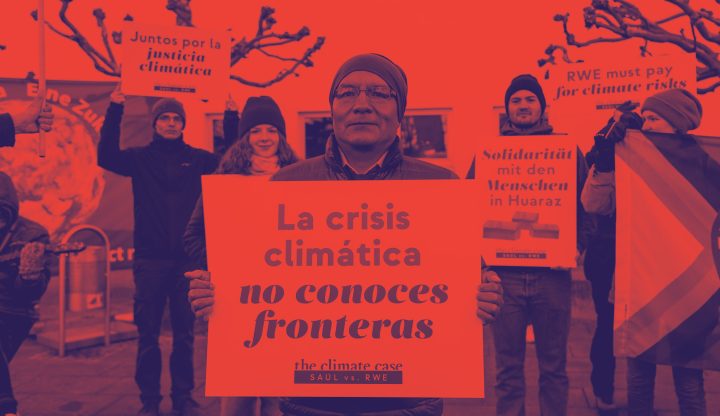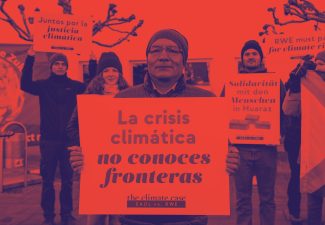News
“Seville’s commitment” must not remain on paper
By Mariana Matamoros, Sergio Chaparro Hernández | | Financing for Development, Human Rights, ONU
Climate budgets
By Mariana Matamoros | | climate budgets, Tax policy, Taxes and climate change
News
Search in News
“Seville’s commitment” must not remain on paper
By Mariana Matamoros, Sergio Chaparro Hernández | | Financing for Development, Human Rights, ONU
Climate budgets
By Mariana Matamoros | | climate budgets, Tax policy, Taxes and climate change
Taxes and spending with a sense of social justice
By Mariana Matamoros | | Climate Change, Colombia, Justicia Fiscal, Tax justice, Tax policy, taxes
What’s in the shopping cart: the hidden history of “neutral” taxes
By Diana Esther Guzmán Rodríguez, Mariana Matamoros | | care work, Inequality, neutral taxes, tax system
The Hungarian Case and its Anti-NGO Laws
By Nina Chaparro González, Oliver Hodges-Jackson | | Authoritarianism, civil society, Closure of civil society spaces, NGOs non-governmental organizations
Reclaiming multilateralism for a shared future
By Christy Crouse, Abby Steckel | | Estados Unidos, Multilateralismo, Trump
Search in Opinion
The Outstanding Debts of the Ranchería Dam
By Carlos Andrés Baquero Díaz | | Colombia, Colombia, Consulta previa, Consulta previa, Discriminación, Discriminación
Coauthored by Angélica María Cuevas
The idea calling for a second phase of the El Cercado dam in the Riego Ranchería District of La Guajira (a Department in Northeastern Colombia), has revived the indigenous group Wiwa's concerns. They belive that, for a second time, their opinion has not been considered in the government's plans to authorize, since this year, the construction of preliminary public works for the construction of damns and irrigation systems in the Districts of Ranchería and San Juan del Cesar. These works, according to Ariel Borbón Ardila, head of the Colombian Institute for Rural Development (Incoder, by its name in Spanish), are estimated to cost $546 Billion Colombian Pesos (about $227.5 Million U.S. dollars).
The Legal Vine of Peace
By Rodrigo Uprimny Yepes | | Derechos de las víctimas, Derechos de las víctimas, Marco jurídico para la paz, Paz
Peace, according to the FARC, is basically a political process that should remove the "legal vine" with which some would like to choke the life out of it. César Gaviria has weighed in similarly ashis idea of "transitional justice for everyone" is not legal but political: the ex-President thinks of it as a "collective political decision," that cannot be put off by international law.
Law and Honor
By Mauricio García Villegas | | Colombia, Colombia, Cultura jurídica, Cultura jurídica
One time I found myself with a foreign colleague that moved to Colombia. I asked how he was doing and he said he was doing very well, that he loved traveling through the country and enjoy the diversity of climates, fruits, and landscapes.
Stories
FromTheTerritory
We travel with 20 indigenous activists of the world to the heart of the Sierra Nevada de Santa Marta. Listen to this story about the Kankuama Resistance.
Dejusticia's
Documentaries
Discover some of the documentary pieces that we have made. Indigenous resistance, migration of Venezuelans to Colombia and stories of women coca growers, are some of our topics of interest.








